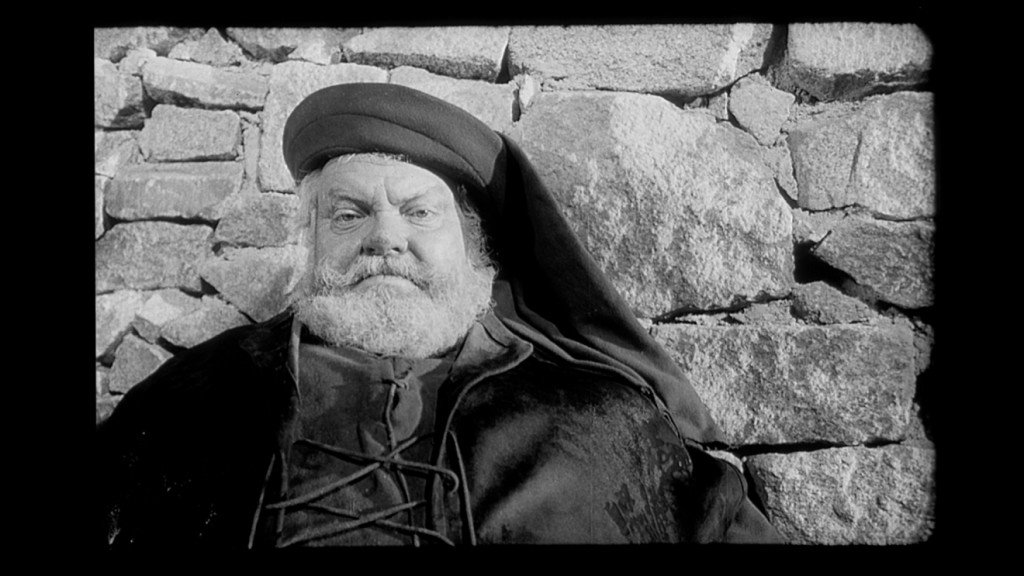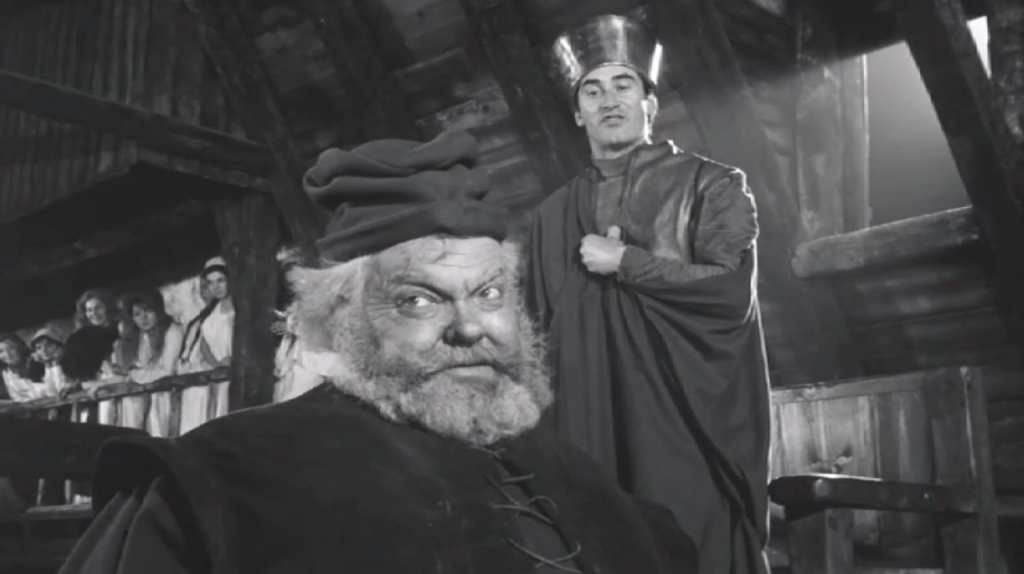
The great auteur Orson Welles loved Shakespeare and made three Shakespearean movies, of which Chimes at Midnight is the masterpiece. Welles’ genius was in braiding together parts of Henry IV Parts 1 and 2, some Richard III, Henry V and The Merry Wives of Windsor into a cohesive story of what he called “betrayal of friendship”. You can watch Chimes at Midnight Wednesday on Turner Classic Movies.
Welles himself vividly plays the recurring Shakespearean character of Sir John Falstaff.
Falstaff is a rogue knight, a shameless braggart and robustly debauched.
The young Prince Hal (Keith Baxter), the future King Henry V, is sowing his wild oats, and he is in the market for a dissolute companion. To the disgust of Hal’s severe father, King Henry IV (John Gielgud), Hal and Falstaff are carousing buddies, their fast friendship forged in taverns with plentiful spirits and women of easy virtue. (Falstaff’s wench is played by Jeanne Moreau.)
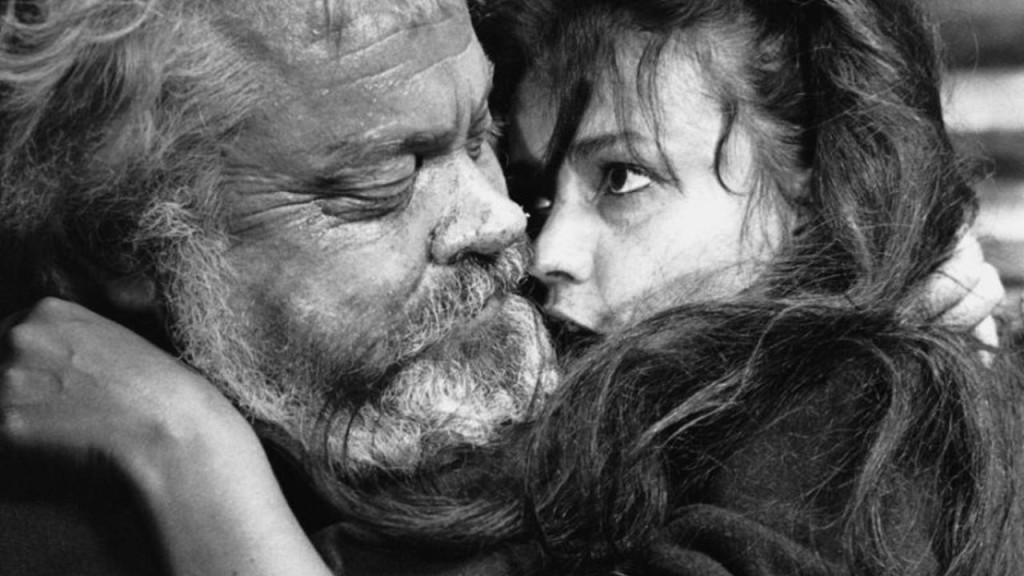
There’s plenty of palace intrigue interwoven with the comic pranks and partying by the rascal Hal and his favorite scoundrel Falstaff. Falstaff even does mocking impressions of Henry IV.
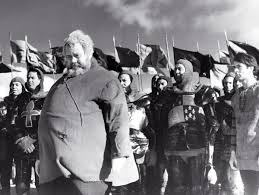
Chimes at Midnight features an amazing 12-minute battle scene beginning at the 55 minute mark. Somehow Welles was able to afford 150 extras and was able to use them and his camera to create a battle scene as effective as the ones in Braveheart and Kenneth Branagh’s Henry V. Welles doesn’t pull any punches in depicting the brutality of medieval warfare. The initial horse charge is followed by the chaos of hacking and clubbing. The combatants become a roiling cauldron of lethal mayhem. In all the fog of war, it’s still easy to follow Falstaff in his size XXXL armor. Welles’ Falstaff believes that honor is merely ornamental and not worth sacrificing one’s life for. No hero, Falstaff.
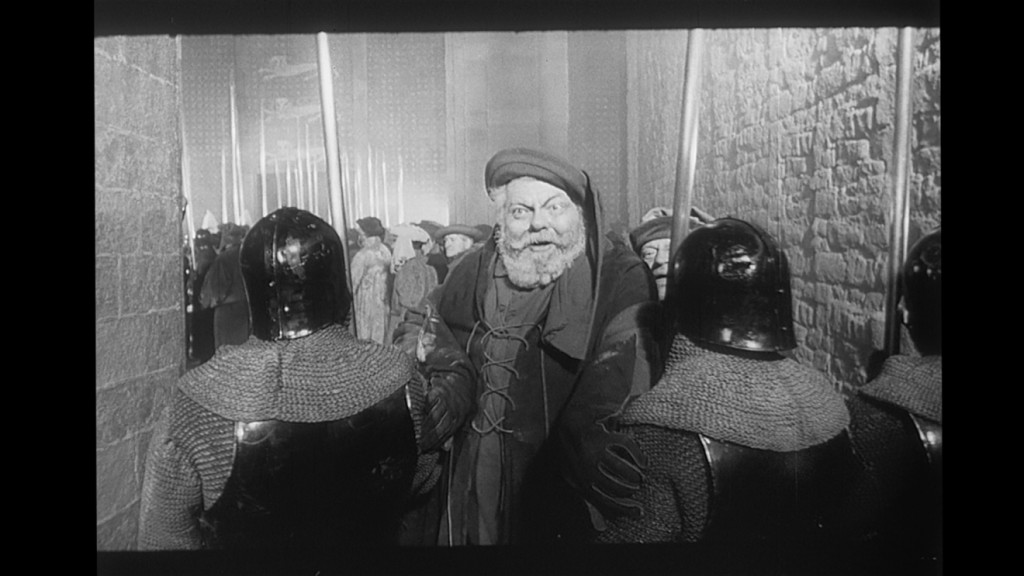
Finally, Henry IV dies and Prince Hal will ascend the throne. Falstaff thinks he’s won the lottery, but a king can’t afford sloppy bad habits. Hal rejects vanity, of which Falstaff is the signal emblem. Hal rebuffs Falstaff with Presume not that I am the thing I was and banishes him. Falstaff is stunned – but then proud of his mentee. Defeated in the end, Welles’ eyes show us his pride and simultaneous disappointment. This high point of Chimes at Midnight is also probably Welles’ best moment as an actor.
The broad, raucous comedy in Chimes at Midnight shows us what it must have like to see Shakespeare’s words performed in the rowdy Globe Theater. Shot in Spain with authentic medieval settings, Chimes at Midnight looks very good for a low, low-budget film. It is narrated by Ralph Richardson.
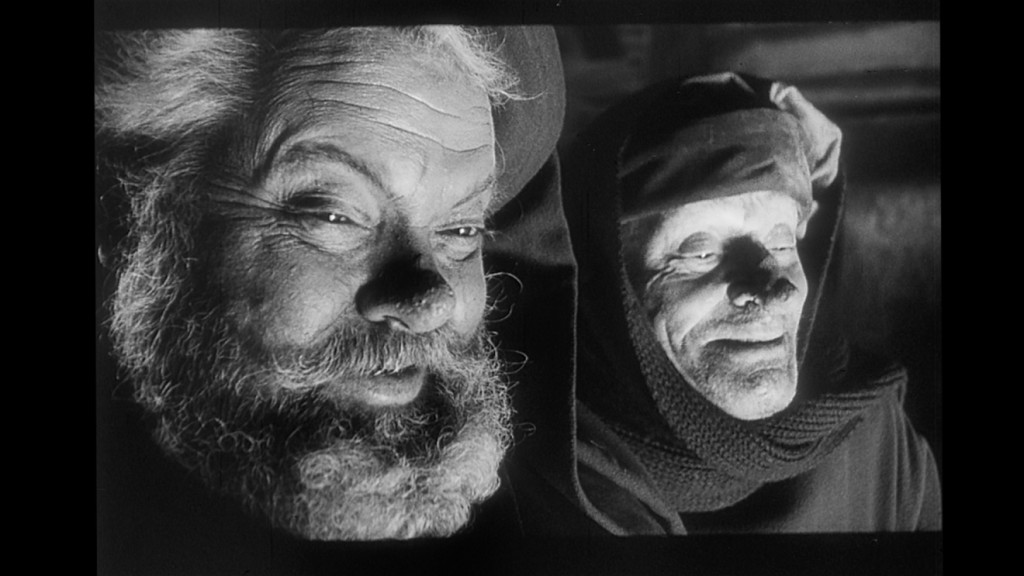
This is a brilliant film, and it’s high on my list of Best Shakespeare Movies.
Chimes at Midnight was extremely hard to find until very recently, except for a bootleg on YouTube and a 2015 DVD released in the UK. It’s still not available to rent on DVD. Fortunately, Chimes at Midnight has become available to stream on Amazon, iTunes, Vudu, YouTube, Google Play and FilmStruck. And, of course, it plays occasionally on Turner Classic Movies where it will be featured on January 17.
